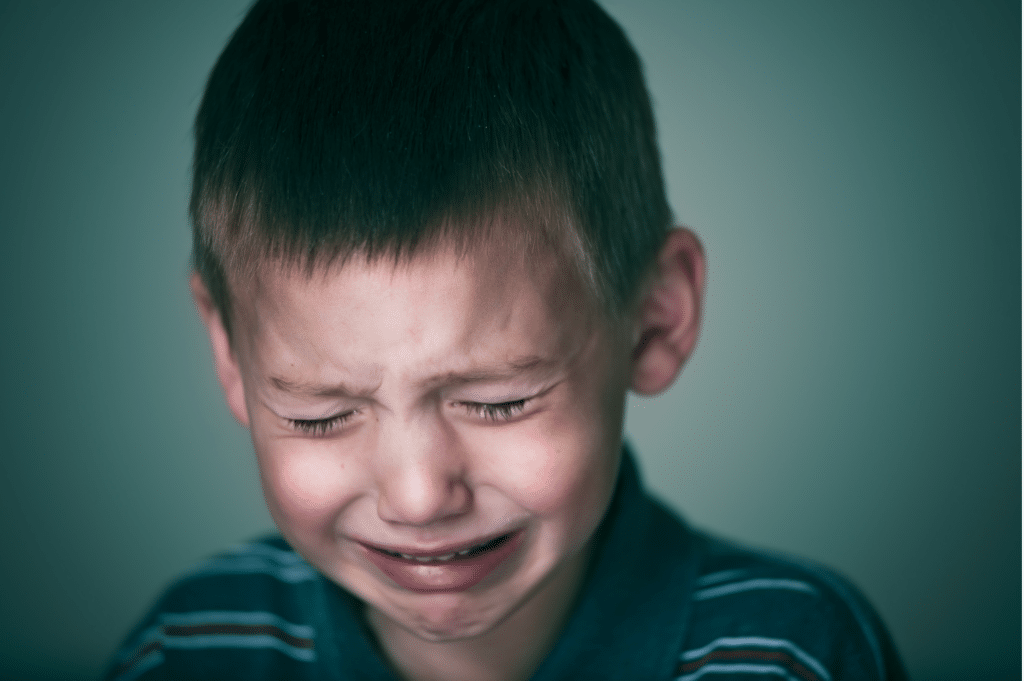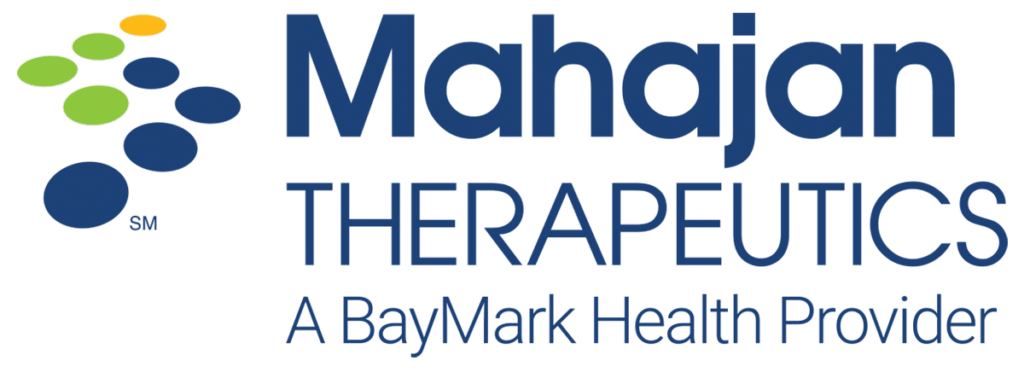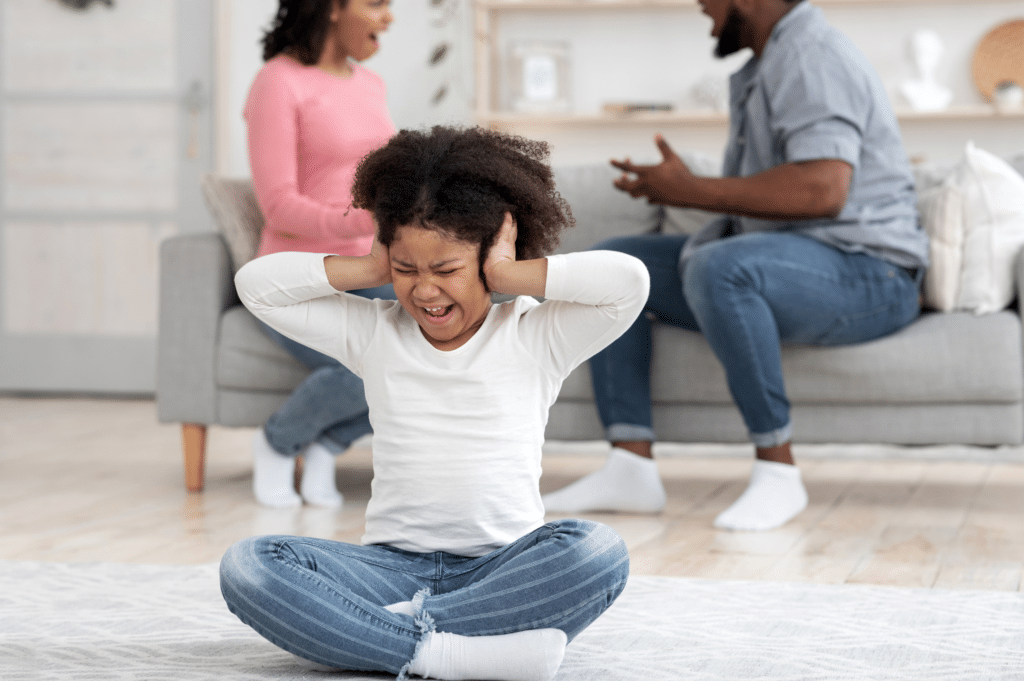Can childhood trauma impact mental health for life? Absolutely! What happens if childhood trauma goes untreated? Unfortunately, research suggests that trauma in early childhood can go on to cause symptoms of post-traumatic stress disorder (PTSD) in adulthood. This is all the more reason to take action quickly to address childhood trauma.
Lasting symptoms of childhood trauma can include:
• Depression
• Anxiety
• Substance abuse
• Anti-social behavior
Because the effects of childhood trauma, also referred to as adverse childhood experiences (ACEs), can go on to affect someone’s entire life, early intervention is vital. Addressing trauma early and learning to process emotions can help both children and adults live healthier, more fulfilling lives.
This article explores trauma signs and how early treatment, like therapy, can improve recovery outcomes. We’ll also look at childhood trauma recovery using strategies you can employ if you or a loved one has experienced trauma.
The Impact of Childhood Trauma on Mental Health
Before diving into how to heal childhood trauma, it’s important to first take a look at how trauma affects brain development. One of the reasons trauma in childhood can have such a profound, long-lasting effect is due to neurodevelopmental changes in the brain. Up until around five years old, a child’s brain is very “plastic”, meaning it can mold and adapt to changes.
This also means that the brains of very young children are affected by major changes in a more impactful manner. Think of it this way: A developing brain does not have the experience or coping skills needed to determine what is or is not a threat or how to categorize threats.
Major trauma, such as abuse or severe neglect, can “leave a mark” that becomes embedded in a child’s psyche. Like a mental scar, this lasting impression can continue to affect everything from decision making to interpersonal relationships long into adulthood. Mental health after trauma can be greatly affected.
In the short-term, children who experience trauma may experience confusion, frustration, or feeling helpless. This can manifest in symptoms like anger or avoidant behaviors.
Children who experience trauma are also more likely to be at an increased risk of developing anxiety, depression, and emotional dysregulation. These effects can go on to cause anxiety in adulthood as well.
When Should You Seek Help After Childhood Trauma?
How soon should therapy start after childhood trauma? How can you know when to seek therapy for childhood trauma? In terms of timing, early intervention can make a big difference. In general, healing childhood trauma early produces greater odds of success.
How Childhood Trauma Affects Mental Health: Signs of Childhood Trauma
Some early childhood trauma symptoms can include:
- Nightmares or night terrors
- Withdrawal from social situations, friends, and family
- Aggression, including bursts of anger or violence
- Fearfulness, including nervousness around caregivers or authority figures
What happens if childhood trauma goes untreated? The mental and emotional effects can become deeply embedded. This can make it more challenging to overcome trauma later in life, which is why it is crucial to address trauma early.
Signs of PTSD in Children After Trauma

To take things a step further, parents and caregivers should know that there are age-specific signs of trauma that affect children differently at different stages of development:
- Infants and toddlers: Excessive crying, fearfulness, developmental delays
- Children to age 12: Behavioral issues, learning difficulties, trouble forming relationships.
- Teens and young adults: Depression, risky behaviors, self-harm, substance use
Is it ever too late to seek help? No – healing from childhood trauma can start at any age. While early intervention for trauma through therapies like trauma-informed care is best, there is no wrong time to begin addressing trauma, whether that’s in childhood or adulthood.
Early Intervention: Why Addressing Trauma Sooner Is Better
Neuroplasticity is high in early childhood. While this can mean that it’s easier for traumatic events to stick, it also means that it’s easier to reshape thinking that has become disordered due to trauma. With early intervention, the brain can “rewire” itself and heal.
Early intervention can also lessen the potential for long-term effects like addiction, PTSD, or personality disorders later in life. This is not to suggest that adults who have experienced childhood trauma should not seek treatment, but it is to say that addressing concerns early can alleviate suffering later in life.
Addressing Mental Health After Childhood Trauma
By addressing trauma early in childhood, children also have the chance to learn or re-learn emotional regulation and coping skills. These skills are important to have even in the absence of trauma, but when trauma is involved, these skills become even more vital.
Best Therapy Options for Childhood Trauma Recovery
Healing from trauma is a personal journey for children as well as adults, but there are some strategies and therapies that have proven results. If you’re looking for the best therapy options for childhood trauma recovery, below are some options to consider.
Cognitive Behavioral Therapy (CBT) for Trauma
Cognitive behavioral therapy for trauma is concerned with identifying and changing negative thought patterns and behaviors. CBT can help children and adults by encouraging them to examine negative thoughts, challenge those thoughts, and adjust behaviors accordingly.
Trauma-Focused Cognitive Behavioral Therapy (TF-CBT) for Children
Trauma-focused cognitive behavioral therapy (TF-CBT) is a specialized version of CBT that is often used to help children who have experienced trauma. TF-CBT uses a series of components (PRACTICE) that align to address trauma. These include:
- Parenting and psychoeducation
- Relaxation
- Expression and modulation
- Cognitive coping
- Trauma narration and processing
- In vivo mastery
- Conjoint sessions
- Safety and future development
Play Therapy for Younger Children
Play is a great childhood trauma therapy and is often beneficial for younger children to help them express emotions. Play is a natural part of childhood, and play therapy works as a therapeutic tool because children tend to lack the verbal skills necessary to explain strong emotions.
How to Support a Child with Past Trauma: Family Therapy
Family therapy is designed to help victims of trauma as well as their loved ones. Family therapy can be a wonderful option for parents to support their child’s healing journey.
Being the parent of a child who has experienced trauma requires an understanding of how the child processes not only trauma but the world. Communication in family therapy helps to bridge gaps and can lead to a greater understanding between parents and children.
Family therapy can also improve family dynamics and works to address concerns with conflict resolution. If a family member has been involved in causing trauma, family therapy may not be the best course of action, but this should be examined on a case-by-case basis by a professional.
How to Support a Child or Loved One Through Trauma Recovery
If you are the caregiver of a child who has suffered trauma, you want to know how to support a child with past trauma. Because trauma can be complex and everyone responds differently to it, there is no “one-size-fits-all” solution; however, there are steps you can take to improve a child’s odds of overcoming the challenges of trauma.
Provide a Safe, Stable Homelife
Providing a safe, stable environment is one of the most important steps a caregiver can take. Setting a safe, secure foundation in a child’s living environment can make a big difference in the success of more involved therapies.
Encourage Open Communication Without Forcing Discussions
Encouraging open communication without forcing discussions can also help children affected by trauma to feel comfortable communicating. Because children may already have natural challenges in expressing emotions verbally, allowing them to speak when they feel comfortable doing so can make a big difference.
Promote Various Means of Expression
Helping children develop coping mechanisms like mindfulness, journaling, or creative expression can open the door to healing and communication. Different children process trauma and its associated effects differently. Encouraging a child to express their feelings through various activities can help them to feel comfortable opening up and seeking help as needed.
Seek Help from a Professional
Seeking professional help early rather than waiting for symptoms to worsen is crucial. A mental health professional can provide personalized strategies for families and children who have been affected by trauma. Once symptoms have begun to manifest, treatment may become more arduous, so it’s a good idea to begin professional treatment if you’re at all concerned about a traumatic event affecting a loved one.
Healing From Childhood Trauma as an Adult
Although childhood trauma can last into adulthood, this doesn’t mean that help is not available. In fact, there’s never a bad time to seek solutions.
Therapies are available that can help you untangle negative thought patterns that you may have considered permanent. Therapy can also help adults unlock, face, and overcome unresolved trauma that may have been buried over the years.
Therapy Options for Adult Survivors of Childhood Trauma
Therapy options for adult survivors of childhood trauma can include CBT, eye movement desensitization, and reprocessing (EMDR) and narrative therapy. Partnering with a professional can help you find the right approach that works for you.
Lastly, self-compassion can be your superpower. Reprocessing past experiences with a healthy mental framework alongside a caring professional can help you overcome the emotional effects of trauma at any stage in life.
When in Doubt, Seek Help Early
Trauma can be difficult to overcome, but the earlier trauma is addressed, the more likely a person is to see positive outcomes. Even in adulthood, the effects of childhood trauma do not have to control your life.
Therapies are available, and mental health professionals can work with you to find solutions. By taking action now, you can regain your life and face your future confidently and unafraid.
If you or a loved one are navigating childhood trauma and its effects, contact Mahajan Therapeutics. We provide mental health therapies designed to help children and adults affected by trauma to thrive.

